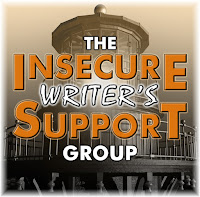Welcome readers, writers, authors, and bloggers!
We’re glad you’re here! It's the First
Wednesday of the month; when we celebrate IWSG Day in the form of a blog hop featuring all of
the members of the Insecure Writer's Support Group. Founded
by author Alex Cavanaugh (Thank you, Captain!) and fostered by
like-minded associates, IWSG is a comfortable place to share views and literary
news from our perspective writing desks as we record our journeys. Check out
the February newsletter here
Our awesome
co-hosts this month are: Jacqui Murray, Ronel Janse van Vuuren, Pat
Garcia, and Gwen Gardner! Feel free to hop around and say hello to everyone!
The optional question for this month is: February
1 question - If you are an Indie author, do you make your own covers or
purchase them? If you publish trad, how much input do you have about what goes
on your cover?
As an Indie author, you can
create your own cover or choose from any gallery you like. You can change your
mind as many times as it takes to look and feel just right. It’s not free or
as easy as it looks, but it is an enjoyable and rewarding experience. While Traditional
publishers alleviate many of the trepidations, they also have a say in the look and feel of your cover because they control the purse strings and the timeline and prefer to keep both at a minimum.
We’ve come a long way since the
first Dust Jackets. Did you know it was Lewis Carroll who first requested
(1876) his titles be printed on the spines of the plain “paper wrappers” that
encased his books? While that became a standard, any other printing that appeared on the
front, back, or flaps of dust jackets has always been determined by the publishers. By the
1920s, much more emphasis was being placed on the Dust Jacket than the ornate
binding it was created to protect as publishers began to hire commercial artists
to design attractive jackets in addition to including author bios and synopsis’
on the inside flaps.
Our library had a number of old
books without dust jackets. I’d run my finger over the title embossed on a
cover and try to imagine the storyline. Or what the author was like. There was
a certain excitement in simply wondering.
Happy writing, all!

